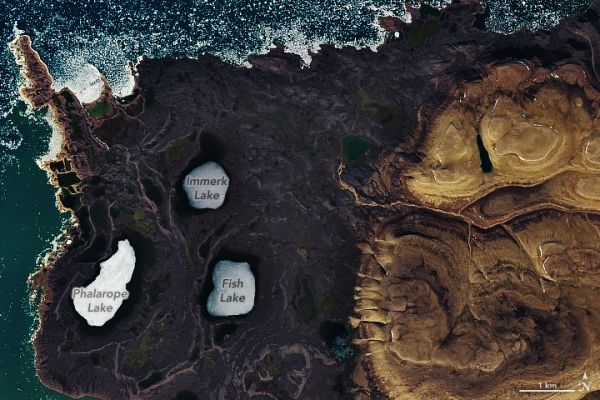Because the atmosphere is about 100 times thinner and less dense than on Earth, weather on Mars is defined by its extremes.
Near the equator, daytime highs regularly exceed the freezing point, occasionally rising above 15 degrees Celsius on summer days (into the 60s in Fahrenheit). But even during the hottest part of summer, nighttime temperatures regularly plummet below -75 °C (-100°F) because of how little heat the atmosphere can retain. Near the poles, the cold is even more punishing, with wintertime lows that drop below -120°C (-184°F).
Nonetheless, Eric Vaz thinks that someday certain hardy plants from Earth could be grown on Mars. “In fact, I think we will need to bring plants and think about terraforming if we are serious about having people live on Mars,” said Vaz, a professor of geographical analysis at Ryerson University. Plants could play a role in life-support systems because they recycle water and oxygen while filtering out carbon dioxide. Vaz recently co-authored a study, published in Life Sciences in Space Research, that lays out a new framework for small-scale terraforming on Mars.
Continue reading at NASA Earth Observatory
Image via NASA Earth Observatory


